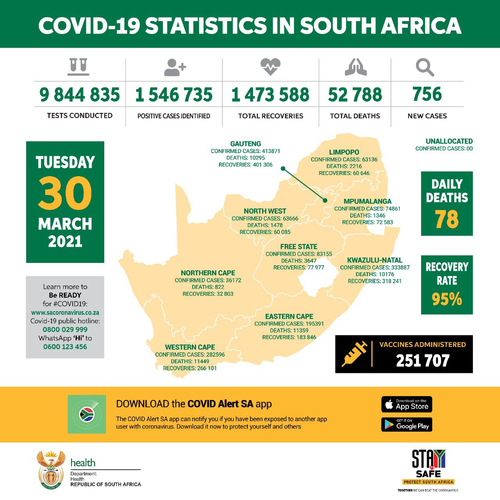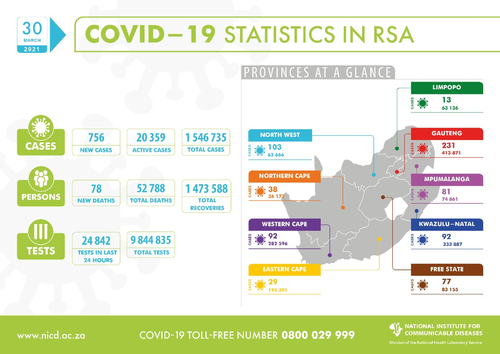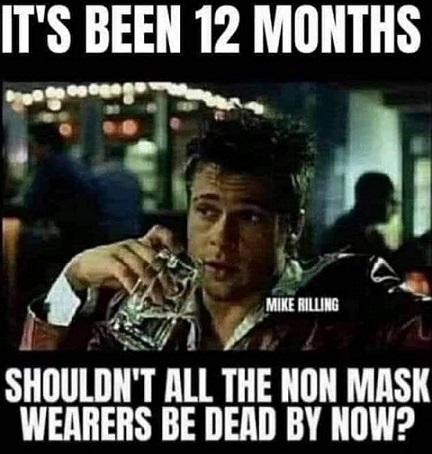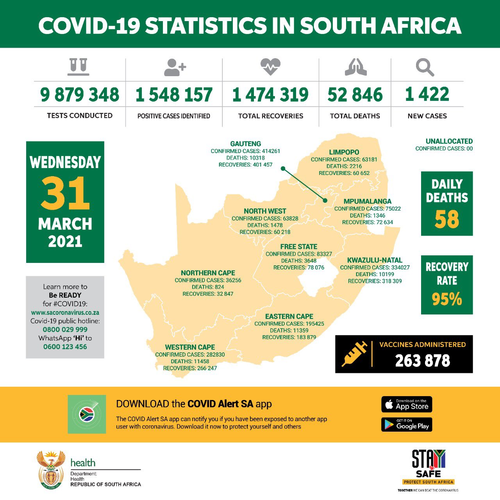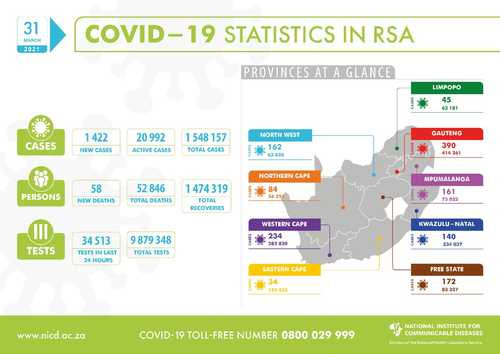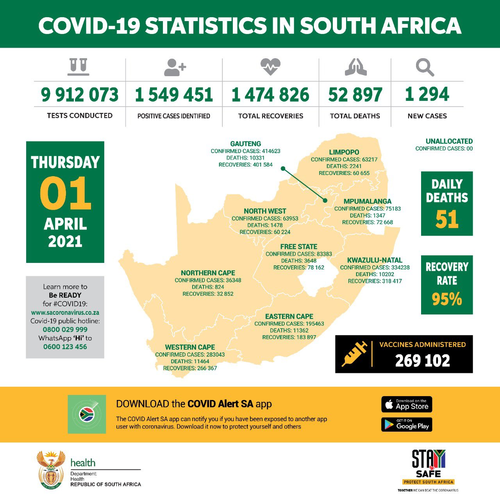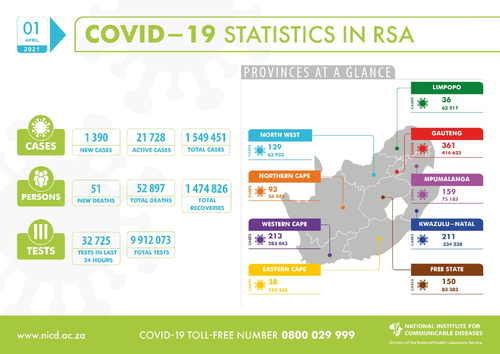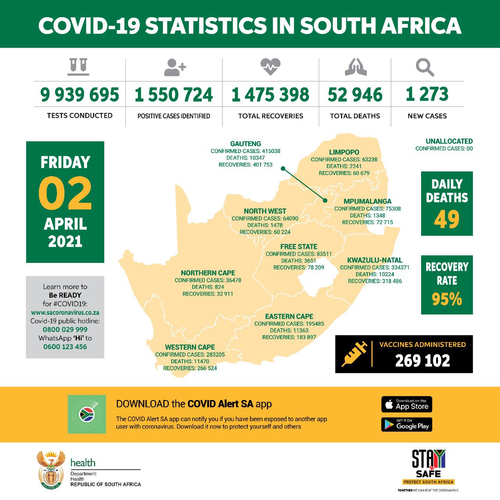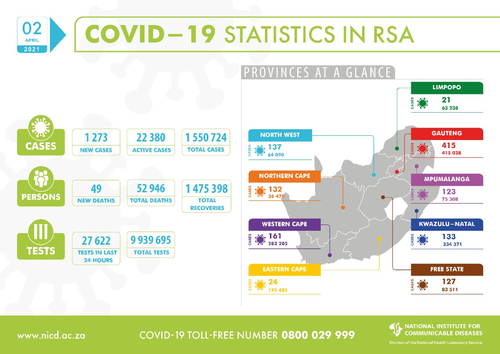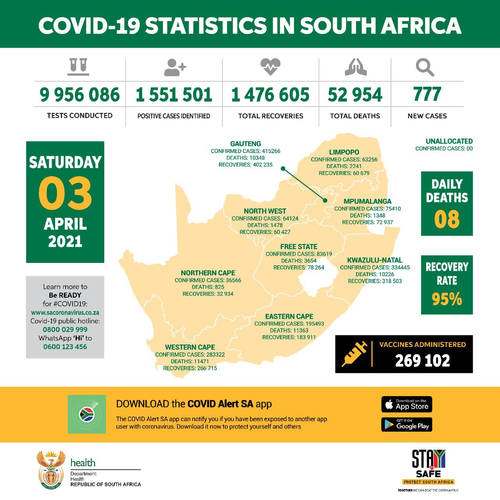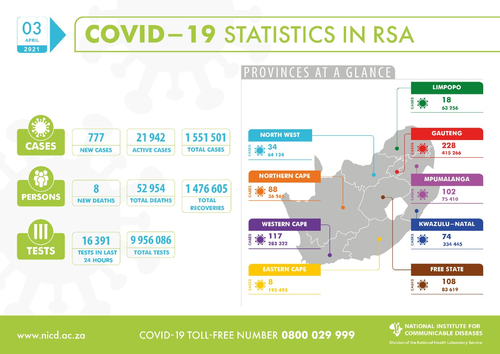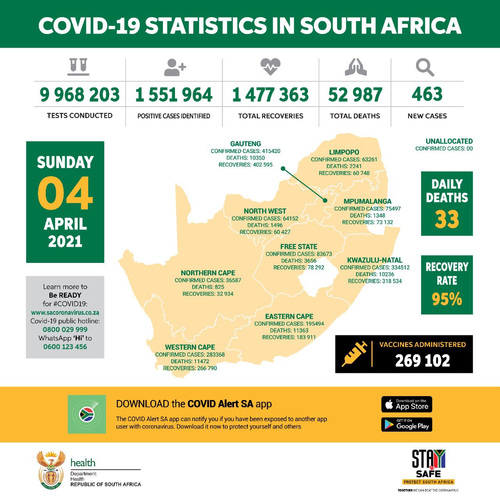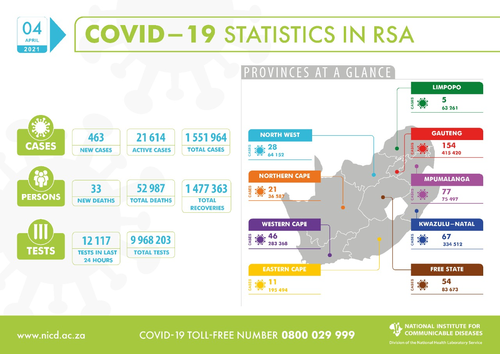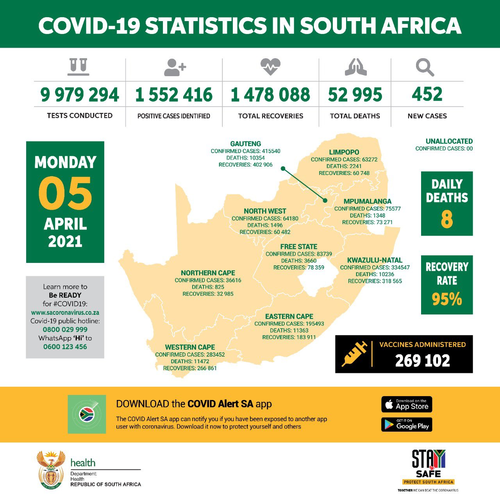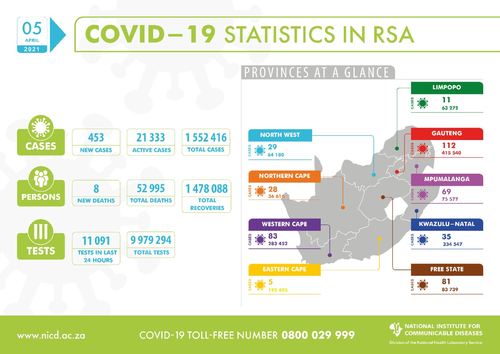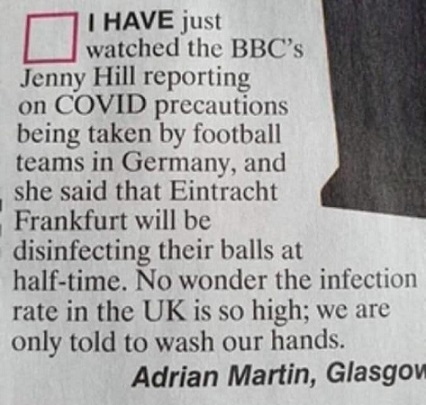So everyone is just going to shop and stock for the weekend tomorrow and Thursday. And bulk buying leads to much more binge drinking in my experienceHe said from Friday till Monday
Navigation
Install the app
How to install the app on iOS
Follow along with the video below to see how to install our site as a web app on your home screen.

Note: this_feature_currently_requires_accessing_site_using_safari
More options
You are using an out of date browser. It may not display this or other websites correctly.
You should upgrade or use an alternative browser.
You should upgrade or use an alternative browser.
Lockdown diaries - COVID-19 matters!
- Thread starter Grand Guru
- Start date
-
- Tags
- lockdown
So everyone is just going to shop and stock for the weekend tomorrow and Thursday. And bulk buying leads to much more binge drinking in my experience
I've stopped trying to make sense of these regulations.
In my experience the guy with a few friends having a braai with a couple of beers is not the problem. The guy getting in his car, driving to a pub and finishing as many tequila shots as he can and then getting in his car again and causing k@k along the way, he is the bigger problem.
If they made the curfew earlier it would make more sense.
But I will be working anyway, so it doesn't really matter to me.
Offsite alcohol sales to be banned from Friday to Sunday' Ramaphosa says
''To this end, the sale of alcohol for off-site consumption will be prohibited this coming Friday, Saturday, Sunday and Monday.'' is this now Sunday or Monday ??
https://ewn.co.za/live/LIVE-BLOG--F...phosa-addresses-nation-on-COID19-developments
Nothing more than a stunt.
'Remember who's in charge here.'
It’s home at last for SA’s first COVID-19 lung transplant patient
https://www.all4women.co.za/2218602...or-sas-first-covid-19-lung-transplant-patient
30 March 2021
"... Mbali’s COVID-19 journey started more than 113 days prior on 23 November 2020, when the severely ill expectant mother was hospitalised in an effort to safeguard both her and her unborn child. Mbali’s condition however deteriorated and by 1 December her obstetrician was left with no choice but to deliver her baby at 30 weeks via emergency C-section...
Dr Paul Williams, pulmonologist intensivist at Netcare Milpark Hospital relates the next steps: “Mbali was brought to Netcare Milpark Hospital, shortly after she had her baby. She was in serious danger as both her lungs were affected from top to bottom with pneumonia and she was not extracting oxygen from the air. We immediately had to escalate her treatment to a more sophisticated form of care than what would generally be needed by most patients with COVID-pneumonia.”
Cardiothoracic surgeon, Dr Martin Sussman, says Mbali was in extremis and was taken straight from the ambulance into theatre where she was placed on extracorporeal membrane oxygenation (ECMO), which artificially maintains a supply of oxygen to the brain and other vital organs for patients who require either or both respiratory and cardiac support.
“ECMO is essentially an artificial lung. The circuit does the work of the lungs and that is how we kept Mbali alive while she had COVID-pneumonia,” explains Dr Sussman. “While Mbali eventually recovered from COVID-19 her lungs did not recover. One of the complications of COVID-19 is that it sometimes damages the lungs extensively. In Mbali’s case the damage was irreversible. Her only chance of survival was to receive a donor lung.”
A first for South Africa and the African continent?
Commenting on what appears to be a first for South African medicine, Dr Williams, who along with Dr Martin Sussman, led the lung transplant team performing Mbali’s surgery, says lung transplantation itself is a rare procedure for patients with established lung disease such as cystic fibrosis and other conditions. It is done only after all other treatments for lung failure are unsuccessful.
“COVID-19 is a new one for us though. We have had no experience in transplantation with this virus and we are fairly sure that we are the first team in South Africa to do it – perhaps we are even the first team on the African continent. Throughout the world there have been only around 100 lung transplants performed so far for COVID-19 pneumonia at a handful of facilities.” ...
Waking up in hospital after two months
According to Mbali her next memory after delivering her baby was waking up in Netcare Milpark Hospital, many weeks later.
“Some time after I woke up, I was told that I had been in a coma for two months and that I had a lung transplant. In fact, it seemed that there was very little hope I would survive. Had it not been for the exceptional medical care I received and for the lung transplant I would not be here today,” she says.
Despite everything she has gone through, Mbali has left Netcare Milpark Hospital with good memories and much to be thankful for: “The staff are very warm and caring. They ended up feeling like family. The encouragement that the nursing staff and doctors gave me on a daily basis really carried me through. They made me feel like everything was going to be ok." ...
https://www.all4women.co.za/2218602...or-sas-first-covid-19-lung-transplant-patient
30 March 2021
"... Mbali’s COVID-19 journey started more than 113 days prior on 23 November 2020, when the severely ill expectant mother was hospitalised in an effort to safeguard both her and her unborn child. Mbali’s condition however deteriorated and by 1 December her obstetrician was left with no choice but to deliver her baby at 30 weeks via emergency C-section...
Dr Paul Williams, pulmonologist intensivist at Netcare Milpark Hospital relates the next steps: “Mbali was brought to Netcare Milpark Hospital, shortly after she had her baby. She was in serious danger as both her lungs were affected from top to bottom with pneumonia and she was not extracting oxygen from the air. We immediately had to escalate her treatment to a more sophisticated form of care than what would generally be needed by most patients with COVID-pneumonia.”
Cardiothoracic surgeon, Dr Martin Sussman, says Mbali was in extremis and was taken straight from the ambulance into theatre where she was placed on extracorporeal membrane oxygenation (ECMO), which artificially maintains a supply of oxygen to the brain and other vital organs for patients who require either or both respiratory and cardiac support.
“ECMO is essentially an artificial lung. The circuit does the work of the lungs and that is how we kept Mbali alive while she had COVID-pneumonia,” explains Dr Sussman. “While Mbali eventually recovered from COVID-19 her lungs did not recover. One of the complications of COVID-19 is that it sometimes damages the lungs extensively. In Mbali’s case the damage was irreversible. Her only chance of survival was to receive a donor lung.”
A first for South Africa and the African continent?
Commenting on what appears to be a first for South African medicine, Dr Williams, who along with Dr Martin Sussman, led the lung transplant team performing Mbali’s surgery, says lung transplantation itself is a rare procedure for patients with established lung disease such as cystic fibrosis and other conditions. It is done only after all other treatments for lung failure are unsuccessful.
“COVID-19 is a new one for us though. We have had no experience in transplantation with this virus and we are fairly sure that we are the first team in South Africa to do it – perhaps we are even the first team on the African continent. Throughout the world there have been only around 100 lung transplants performed so far for COVID-19 pneumonia at a handful of facilities.” ...
Waking up in hospital after two months
According to Mbali her next memory after delivering her baby was waking up in Netcare Milpark Hospital, many weeks later.
“Some time after I woke up, I was told that I had been in a coma for two months and that I had a lung transplant. In fact, it seemed that there was very little hope I would survive. Had it not been for the exceptional medical care I received and for the lung transplant I would not be here today,” she says.
Despite everything she has gone through, Mbali has left Netcare Milpark Hospital with good memories and much to be thankful for: “The staff are very warm and caring. They ended up feeling like family. The encouragement that the nursing staff and doctors gave me on a daily basis really carried me through. They made me feel like everything was going to be ok." ...
Agreed. Trying to make sense of what this government does will just make you crazy. Logic definitely does not prevail.I've stopped trying to make sense of these regulations.
In my experience the guy with a few friends having a braai with a couple of beers is not the problem. The guy getting in his car, driving to a pub and finishing as many tequila shots as he can and then getting in his car again and causing k@k along the way, he is the bigger problem.
If they made the curfew earlier it would make more sense.
But I will be working anyway, so it doesn't really matter to me.
@ARYANTO Here's the Traffic Department's response:
https://www.capetalk.co.za/articles...king-70-year-old-man-from-reaching-dying-wife
"City Of Cape Town Traffic Department's Richard Coleman said:
From the department's side, we empathise with Mr Tembo's circumstances.
The officers observed this vehicle on Klipfontein Road travelling at an extremely high speed and the officers pursued the vehicle with their blue lights and siren - and this vehicle refused to stop. Coleman says the driver went through red traffic lights with no regard for other road users, overtook vehicles in the face of oncoming traffic and almost caused a collision.
If he had stopped when he was first asked to stop, these officers would definitely have assisted this motorist and taken him to the hospital. Traffic officers often assist motorists in urgent need to get to hospitals, he explains.
Coleman says a charge was laid at Manneberg SAPS but the outcome depends on what happens in the court case."
* NEW *
CHARGES DROPPED
https://www.capetownetc.com/news/ch...eld-for-speeding-to-say-goodbye-to-dying-wife
March 31, 2021
"... Arnold Tembo has been cleared of all criminal charges after the National Prosecuting Authority (NPA) declined to prosecute him..."
New data shows that the Moderna and Pfizer vaccines are safe for pregnant and breastfeeding women
https://www.all4women.co.za/2218901...are-safe-for-pregnant-and-breastfeeding-women
31 March 2021
"A recent Covid-19 vaccine study indicates that vaccinations on pregnant and breastfeeding women show a healthy immune response... The study was accepted by the American Journal of Obstetrics and Gynecology on 22 March and published on 25 March.
What does the study show?
The study has found that Covid-19 vaccines are highly effective in creating antibodies against the virus. These antibodies are equally beneficial for newborns and children in utero. The antibodies travel to a child through the placenta and breastfeeding as well.
The study had 131 women in the below categories:
84 pregnant
31 breastfeeding
16 non-pregnant
Which vaccines are found to be safe?
The study was looking at the messenger RNA (mRNA) vaccine. According to the Centers for Disease Control and Prevention (CDC), “an mRNA vaccine works by encoding a portion of the spike protein found on the surface of SARS-CoV-2, the virus that causes COVID-19.”
The Pfizer and Moderna vaccines are both mRNA vaccines.
On 9 March 20201, Business Insider reported that “Covid-19 vaccines from Moderna and Pfizer-BioNTech appear significantly less effective against the coronavirus variant first found in South Africa.”
SA has been using the single dose Johnson & Johnson vaccine and recently secured 30 million doses of the vaccine. The J&J vaccine does not use a live virus which is considered safe for pregnant women. This is not based on concrete evidence, and more studies need to be conducted."
https://www.all4women.co.za/2218901...are-safe-for-pregnant-and-breastfeeding-women
31 March 2021
"A recent Covid-19 vaccine study indicates that vaccinations on pregnant and breastfeeding women show a healthy immune response... The study was accepted by the American Journal of Obstetrics and Gynecology on 22 March and published on 25 March.
What does the study show?
The study has found that Covid-19 vaccines are highly effective in creating antibodies against the virus. These antibodies are equally beneficial for newborns and children in utero. The antibodies travel to a child through the placenta and breastfeeding as well.
The study had 131 women in the below categories:
84 pregnant
31 breastfeeding
16 non-pregnant
Which vaccines are found to be safe?
The study was looking at the messenger RNA (mRNA) vaccine. According to the Centers for Disease Control and Prevention (CDC), “an mRNA vaccine works by encoding a portion of the spike protein found on the surface of SARS-CoV-2, the virus that causes COVID-19.”
The Pfizer and Moderna vaccines are both mRNA vaccines.
On 9 March 20201, Business Insider reported that “Covid-19 vaccines from Moderna and Pfizer-BioNTech appear significantly less effective against the coronavirus variant first found in South Africa.”
SA has been using the single dose Johnson & Johnson vaccine and recently secured 30 million doses of the vaccine. The J&J vaccine does not use a live virus which is considered safe for pregnant women. This is not based on concrete evidence, and more studies need to be conducted."
US just launched first study to test a version of Moderna's vaccine against the SA variant
https://www.businessinsider.co.za/modernas-variant-covid-19-vaccine-starts-clinical-trial-2021-3
1 April 2021
The first clinical trial testing a variant-specific COVID-19 shot launched Wednesday.
The NIH-sponsored study will test an updated version of Moderna's coronavirus vaccine.
The shot is designed to fight the B.1.351 strain first identified in South Africa...
NIH researchers expect to enroll 210 healthy American adults in this study by the end of April in the Atlanta, Cincinnati, Nashville, and Seattle areas. Sixty of those volunteers will be selected from a previous study of Moderna's original COVID-19 shot..."
https://www.businessinsider.co.za/modernas-variant-covid-19-vaccine-starts-clinical-trial-2021-3
1 April 2021
The first clinical trial testing a variant-specific COVID-19 shot launched Wednesday.
The NIH-sponsored study will test an updated version of Moderna's coronavirus vaccine.
The shot is designed to fight the B.1.351 strain first identified in South Africa...
NIH researchers expect to enroll 210 healthy American adults in this study by the end of April in the Atlanta, Cincinnati, Nashville, and Seattle areas. Sixty of those volunteers will be selected from a previous study of Moderna's original COVID-19 shot..."
TRANSPORTING ALCOHOL OVER LONG WEEKEND NOT ALLOWED, CONFIRMS DLAMINI-ZUMA
https://ewn.co.za/2021/04/01/transp...ong-weekend-not-allowed-confirms-dlamini-zuma
She just can't help herself, can she?
https://ewn.co.za/2021/04/01/transp...ong-weekend-not-allowed-confirms-dlamini-zuma
She just can't help herself, can she?
Change of plans: Transportation of alcohol allowed
https://www.capetownetc.com/news/change-of-plans-transportation-of-alcohol-allowed/
2 April 2021
"Minister of Cooperative Governance and Traditional Affairs (Cogta) Nkosazana Dlamini-Zuma might have reportedly made a U-turn regarding the transportation of alcohol during the Easter weekend...
But according to EWN, Cogta spokesperson Lungi Mtshali later came on Talk Radio 702 to clarify, saying that people will in fact be allowed to transport their own alcohol.
“The short answer is that yes, people can transport their own alcohol even between provinces. What is prohibited during the four days of the Easter weekend is the off-site sale of alcohol, so the bottle stores will not be opened but there are restaurants and taverns that will be opened,” Mtshali was quoted as saying.
He said there was no risk that alcohol would be confiscated.
According to IOL, Mtshali, however, said: “If you buy alcohol from a restaurant, pub, bar or shebeen and take it home, then you could get into trouble, but if you’re taking alcohol from your own house to a social event, you’re safe”.
Liquor law expert Danie Cronje had told the John Maytham Show on CapeTalk earlier that Dlamini Zuma’s initial ruling had not been in line with the gazetted regulations, the report said..."
https://www.capetownetc.com/news/change-of-plans-transportation-of-alcohol-allowed/
2 April 2021
"Minister of Cooperative Governance and Traditional Affairs (Cogta) Nkosazana Dlamini-Zuma might have reportedly made a U-turn regarding the transportation of alcohol during the Easter weekend...
But according to EWN, Cogta spokesperson Lungi Mtshali later came on Talk Radio 702 to clarify, saying that people will in fact be allowed to transport their own alcohol.
“The short answer is that yes, people can transport their own alcohol even between provinces. What is prohibited during the four days of the Easter weekend is the off-site sale of alcohol, so the bottle stores will not be opened but there are restaurants and taverns that will be opened,” Mtshali was quoted as saying.
He said there was no risk that alcohol would be confiscated.
According to IOL, Mtshali, however, said: “If you buy alcohol from a restaurant, pub, bar or shebeen and take it home, then you could get into trouble, but if you’re taking alcohol from your own house to a social event, you’re safe”.
Liquor law expert Danie Cronje had told the John Maytham Show on CapeTalk earlier that Dlamini Zuma’s initial ruling had not been in line with the gazetted regulations, the report said..."
Schools, club rugby gets green light
https://www.sarugbymag.co.za/schools-club-rugby-gets-green-light/
1 April 2021
"...Schools and club rugby received a massive boost on Thursday as SA Rugby granted permission for the players to return to the field in April, following a one-year hiatus due to the Covid-19 pandemic.
While club teams received the go-ahead to return to play on Monday, 12 April, schools rugby will be able to resume with matches a little later – on Friday, 23 April...."
https://www.sarugbymag.co.za/schools-club-rugby-gets-green-light/
1 April 2021
"...Schools and club rugby received a massive boost on Thursday as SA Rugby granted permission for the players to return to the field in April, following a one-year hiatus due to the Covid-19 pandemic.
While club teams received the go-ahead to return to play on Monday, 12 April, schools rugby will be able to resume with matches a little later – on Friday, 23 April...."
Pfizer vaccine approved for general public
https://www.capetownetc.com/news/pfizer-vaccine-approved-for-general-public/
1 April 2021
"The yet-to-be-released Pfizer vaccine is the only one approved for an emergency roll-out across the general population.
SA Health Products Regulatory Authority (Sahpra) chief executive Dr Boitumelo Semete told told the legislature’s Covid-19 ad hoc committee during a briefing that the Johnson & Johnson (J&J) vaccines, which are being given to health-care workers as part of Phase 1 of the roll-out, are currently part of a trial and not for general population roll-out, reports IOL....
According to the department, the vaccines’ efficacy was already evident. Only 23 health-care workers in the Western Cape are currently infected with Covid-19, the lowest number since the pandemic began in April 2020.
According to Health MEC Nomafrench Mbombo, only half of the Western Cape’s health-care workers were scheduled to be vaccinated by the time the department hoped to receive the Pfizer vaccines, in early April.
“This misses the national deadline for the vaccination of health-care workers.”
“The Pfizer and J&J approvals have been granted by Sahpra, and Covishield, a variant of the Oxford-AstraZeneca vaccine, has had approval granted, but it’s roll-out has been put on hold,” said Mbombo."
https://www.capetownetc.com/news/pfizer-vaccine-approved-for-general-public/
1 April 2021
"The yet-to-be-released Pfizer vaccine is the only one approved for an emergency roll-out across the general population.
SA Health Products Regulatory Authority (Sahpra) chief executive Dr Boitumelo Semete told told the legislature’s Covid-19 ad hoc committee during a briefing that the Johnson & Johnson (J&J) vaccines, which are being given to health-care workers as part of Phase 1 of the roll-out, are currently part of a trial and not for general population roll-out, reports IOL....
According to the department, the vaccines’ efficacy was already evident. Only 23 health-care workers in the Western Cape are currently infected with Covid-19, the lowest number since the pandemic began in April 2020.
According to Health MEC Nomafrench Mbombo, only half of the Western Cape’s health-care workers were scheduled to be vaccinated by the time the department hoped to receive the Pfizer vaccines, in early April.
“This misses the national deadline for the vaccination of health-care workers.”
“The Pfizer and J&J approvals have been granted by Sahpra, and Covishield, a variant of the Oxford-AstraZeneca vaccine, has had approval granted, but it’s roll-out has been put on hold,” said Mbombo."
The women fighting South Africa's 'infodemic'
https://www.bbc.com/news/blogs-trending-56603645
3 April 2021
“In South Africa, a small group of volunteers is waging an online battle against Covid-19 and vaccine misinformation…many think coronavirus is a "hoax" or "not real", and are against public health measures and lockdown rules. Right now, one of their main preoccupations is campaigning against vaccines.
[Sarah Downs, studying molecular biology and infectious diseases], spends hours debunking false claims for friends, family and strangers under the alias Mistress of Science…
At the top end of the information pipeline are a relatively small collection of Facebook groups and users, including some that have actively promoted hard-line anti-vaccination content for years.
"We estimate that it's about 20,000 South Africans who are actually active on anti-vax Facebook pages," says Prof Hannelie Meyer, a pharmacist and adviser to the South African Vaccine and Immunisation Centre (Savic).
That's just a fraction of the country's population of 59 million. And most anti-vaccine claims in South Africa actually originate in the United States, according to a 2015 study.
Anecdotal evidence - for instance the viral take-off in the country of false claims about vaccines and DNA by an American osteopath - suggests this trend has continued through the pandemic.
Data about vaccine hesitancy in South Africa is limited, says Prof Meyer, but studies indicate that more wealthy and educated groups - which include people who are more likely to be white - are less willing to get a jab…
Battling false information
South Africa has been battling the same fake scientific theories that have been spreading elsewhere. And, like in other countries, Facebook groups have been a hotbed of anti-vaccine sentiment.
One of the most prominent groups - 10,000 strong - seeks to spread "awareness" about vaccines. In reality, the hard-line anti-vaccine outlook of members is very clear. The majority of the posts in the group ridicule or dismiss vaccines.
One video posted in the group - originally aired on an evangelical US Christian television programme - suggested getting a jab could lead to "a lifetime of illness".
The woman that runs the group, Christine Hewlett, sells immune system boosting supplements in an online shop along with a book about raising "vaccine-free" children. We repeatedly asked Christine Hewlett for comment, but she didn't respond.
We also contacted Facebook, which says it's looking into the groups we found. A spokesperson pointed out that the social network "has already connected two billion people to reliable information from health experts."
Going undercover
And some South African volunteers have gone a little deeper into the battle against disinformation.
"The claims are so bizarre I could hardly believe there are people believing these things," says Lisa - not her real name because she fears an online backlash. Lisa spends hours lurking in Facebook groups. Her aim is simple: guide people towards trusted sources of health information. "I don't like misinformation, so when I see something, I just try to correct it," she says.
She's been doing that in one form or another for well over a decade, so she's seen communities grow and has become familiar with their tactics.
Young mothers in particular are targeted in Facebook groups, she says, where posts are coordinated to try and convince them not to vaccinate their children.
That's when Lisa springs into action. She keeps her inbox open and believes gentle communication works best - asking about people's concerns rather than shouting statistics at them…"
https://www.bbc.com/news/blogs-trending-56603645
3 April 2021
“In South Africa, a small group of volunteers is waging an online battle against Covid-19 and vaccine misinformation…many think coronavirus is a "hoax" or "not real", and are against public health measures and lockdown rules. Right now, one of their main preoccupations is campaigning against vaccines.
[Sarah Downs, studying molecular biology and infectious diseases], spends hours debunking false claims for friends, family and strangers under the alias Mistress of Science…
At the top end of the information pipeline are a relatively small collection of Facebook groups and users, including some that have actively promoted hard-line anti-vaccination content for years.
"We estimate that it's about 20,000 South Africans who are actually active on anti-vax Facebook pages," says Prof Hannelie Meyer, a pharmacist and adviser to the South African Vaccine and Immunisation Centre (Savic).
That's just a fraction of the country's population of 59 million. And most anti-vaccine claims in South Africa actually originate in the United States, according to a 2015 study.
Anecdotal evidence - for instance the viral take-off in the country of false claims about vaccines and DNA by an American osteopath - suggests this trend has continued through the pandemic.
Data about vaccine hesitancy in South Africa is limited, says Prof Meyer, but studies indicate that more wealthy and educated groups - which include people who are more likely to be white - are less willing to get a jab…
Battling false information
South Africa has been battling the same fake scientific theories that have been spreading elsewhere. And, like in other countries, Facebook groups have been a hotbed of anti-vaccine sentiment.
One of the most prominent groups - 10,000 strong - seeks to spread "awareness" about vaccines. In reality, the hard-line anti-vaccine outlook of members is very clear. The majority of the posts in the group ridicule or dismiss vaccines.
One video posted in the group - originally aired on an evangelical US Christian television programme - suggested getting a jab could lead to "a lifetime of illness".
The woman that runs the group, Christine Hewlett, sells immune system boosting supplements in an online shop along with a book about raising "vaccine-free" children. We repeatedly asked Christine Hewlett for comment, but she didn't respond.
We also contacted Facebook, which says it's looking into the groups we found. A spokesperson pointed out that the social network "has already connected two billion people to reliable information from health experts."
Going undercover
And some South African volunteers have gone a little deeper into the battle against disinformation.
"The claims are so bizarre I could hardly believe there are people believing these things," says Lisa - not her real name because she fears an online backlash. Lisa spends hours lurking in Facebook groups. Her aim is simple: guide people towards trusted sources of health information. "I don't like misinformation, so when I see something, I just try to correct it," she says.
She's been doing that in one form or another for well over a decade, so she's seen communities grow and has become familiar with their tactics.
Young mothers in particular are targeted in Facebook groups, she says, where posts are coordinated to try and convince them not to vaccinate their children.
That's when Lisa springs into action. She keeps her inbox open and believes gentle communication works best - asking about people's concerns rather than shouting statistics at them…"
Drones could help fight coronavirus by air-dropping medical supplies
https://edition.cnn.com/2020/04/28/tech/zipline-drones-coronavirus-spc-intl/index.html
31 March 2021
"... Zipline, based in San Francisco, has used drones to deliver blood and medical products to hospitals and health centers in Rwanda since 2016. Last year, it expanded to Ghana and now it wants to accelerate plans to begin deliveries in the United States.
Air drop
Zipline has two distribution centers in Rwanda and four in Ghana, built to speed up the transport of medical supplies in areas with poor roads and a lack of refrigerated vehicles.
Doctors order products from their phones and drones make the deliveries within a 50-mile range, in an average of 30 minutes, according to Zipline. The drones can carry packages weighing almost 4 pounds (1.8 kilos) and drop them to a designated area on the ground using a simple paper parachute.
Zipline says that it has already delivered over 60,000 units of blood, critical medicines and vaccines for measles, polio and other diseases. Now the company is working with the governments of Rwanda and Ghana to support their coronavirus response efforts, explains Zipline co-founder and CEO Keller Rinaudo.
In Ghana, Zipline's distribution centers hold stocks of emergency personal protective equipment (PPE), allowing health authorities to target their distribution. It has also started delivering Covid-19 test samples from hospitals in rural Ghana to laboratories in the cities of Accra and Kumasi.
"We are stocking a whole bunch of Covid-19 products and delivering them to hospitals and health facilities, whenever they need them instantly," Rinaudo told CNN Business.
Vaccines and test kits will be added to Zipline's inventory when available.
Zipline says that delivering medical supplies to local clinics frees up hospital beds for coronavirus patients, because people with other health conditions can get treatment, such as blood transfusions for example, closer to home. Rinaudo hopes the drones will soon be able to deliver directly to designated neighborhood drop-off points and even to people's homes.
Expanding to the US
Launched in 2016, Zipline is worth $1.25 billion and has close to 300 employees, according to the company, with Goldman Sachs (FADXX) among its investors.
Rinaudo says global public health leaders have visited Zipline's African distribution centers to see how the technology could work in America. Zipline was already planning to launch in the United States later this year and is now hoping to provide coronavirus assistance there, too..."
https://edition.cnn.com/2020/04/28/tech/zipline-drones-coronavirus-spc-intl/index.html
31 March 2021
"... Zipline, based in San Francisco, has used drones to deliver blood and medical products to hospitals and health centers in Rwanda since 2016. Last year, it expanded to Ghana and now it wants to accelerate plans to begin deliveries in the United States.
Air drop
Zipline has two distribution centers in Rwanda and four in Ghana, built to speed up the transport of medical supplies in areas with poor roads and a lack of refrigerated vehicles.
Doctors order products from their phones and drones make the deliveries within a 50-mile range, in an average of 30 minutes, according to Zipline. The drones can carry packages weighing almost 4 pounds (1.8 kilos) and drop them to a designated area on the ground using a simple paper parachute.
Zipline says that it has already delivered over 60,000 units of blood, critical medicines and vaccines for measles, polio and other diseases. Now the company is working with the governments of Rwanda and Ghana to support their coronavirus response efforts, explains Zipline co-founder and CEO Keller Rinaudo.
In Ghana, Zipline's distribution centers hold stocks of emergency personal protective equipment (PPE), allowing health authorities to target their distribution. It has also started delivering Covid-19 test samples from hospitals in rural Ghana to laboratories in the cities of Accra and Kumasi.
"We are stocking a whole bunch of Covid-19 products and delivering them to hospitals and health facilities, whenever they need them instantly," Rinaudo told CNN Business.
Vaccines and test kits will be added to Zipline's inventory when available.
Zipline says that delivering medical supplies to local clinics frees up hospital beds for coronavirus patients, because people with other health conditions can get treatment, such as blood transfusions for example, closer to home. Rinaudo hopes the drones will soon be able to deliver directly to designated neighborhood drop-off points and even to people's homes.
Expanding to the US
Launched in 2016, Zipline is worth $1.25 billion and has close to 300 employees, according to the company, with Goldman Sachs (FADXX) among its investors.
Rinaudo says global public health leaders have visited Zipline's African distribution centers to see how the technology could work in America. Zipline was already planning to launch in the United States later this year and is now hoping to provide coronavirus assistance there, too..."
The destinations open to travelers vaccinated against Covid-19
https://edition.cnn.com/travel/article/countries-open-to-vaccinated-travelers/index.html
1 April 2021
BELIZE
... Those who can prove they've had two doses of the Covid-19 vaccine at least two weeks before their trip no longer have to produce a negative PCR test before entering.
Non-vaccinated travelers are also welcome to visit the country, positioned on the eastern coast of Central America, as long as they provide a negative PCR test taken within four days of their arrival or a rapid antigen test taken within 48 hours of travel
Any visitors who are unable to produce a negative test result when they arrive will be tested at the airport at a cost of $50.
All tourists must download the Belize Health App and fill out the relevant information within 72 hours of arriving in Belize.
CYPRUS
... Currently travelers who are permitted to visit Cyprus have the option to either provide a negative PCR test taken within 72 hours before travel, or undergo a test on arrival.
They must then go into quarantine for two weeks in government-assigned accommodation.
The isolation period can be shortened slightly if travelers undergo a molecular test on their tenth day of quarantine at their own expense and receive a negative result.
ECUADOR AND THE GALAPAGOS
Fully vaccinated travelers can visit Ecuador provided they produce a negative PCR test taken no less than three days before their arrival.
Vaccinated visitors are also allowed to travel to the Galapagos archipelago, which is part of Ecuador, but the rules are slightly more complicated.
Those who wish to visit the UNESCO World Heritage Site once they've entered Ecuador must produce a test taken within 96 hours of their trip.
This means that travelers who plan to travel there more than 96 hours after arriving in Ecuador, will need to take another test at their own expense.
The new rules, which came into effect on March 22, also apply to those who previously tested positive for Covid-19 and are now symptom free. Children under the age of two are exempt from the restrictions.
Travelers must also adhere to Ecuador's Covid-19 protocols, such as wearing face masks in public places and maintaining social distancing and avoid gathering in groups of more than 10 people, during the course of their visit.
ESTONIA
Estonia hasn't just dropped mandatory quarantine requirements for EU travelers, it's also relinquished them for those with evidence proving they've recovered from Covid-19 in the past six months.
The European country is also accepting those with vaccinations from nine suppliers across the world rather than just Moderna, Pfizer-BioNTech or Oxford-AstraZeneca, the three that have been approved by the European Union.
Only vaccination certificates produced in Estonian, Russian or English will be recognized and visitors who've previously had Covid will need to submit a doctor's certificate, as well as a recent PCR test indicating they are no longer infected with the virus.
Estonia currently has a 10-day mandatory quarantine in place for arrivals, with exceptions for European countries deemed low risk, such as Bulgaria, Iceland and Norway, as well as evidence of a negative PCR test taken within three days of arriving. Those arriving from the UK are also required to present a negative PCR test taken no earlier than 72 hours before arrival."
GEORGIA
... The Ministry of Foreign Affairs for Georgia recently announced that all visitors who've received two doses of any Covid-19 vaccine are permitted to enter the nation without producing a negative PCR test.
"Citizens of all countries, traveling by air from any country may enter Georgia if they present the document confirming the full course (two doses) of any Covid-19 vaccination at the border checkpoints of Georgia," the Ministry of Foreign Affairs for Georgia said in a statement.
Non-vaccinated travelers must present a negative PCR test result taken within 72 hours of travel and are also required to take a second test "at their own expense" on day three of their stay.
Those who've traveled to the United Kingdom within 14 days of their visit must undergo a 12-day mandatory quarantine upon entry.
ICELAND
From May 1, fully vaccinated travelers from European Union countries, as well as Liechtenstein, Norway and Switzerland, can skip quarantine when they arrive in Iceland and will not be required to submit a negative PCR test.
Visitors who can provide a paper vaccination in Icelandic, Danish, Norwegian, Swedish or English proving they've had two doses of one of the three main Covid-19 vaccines will be exempt from border restrictions.
However, those who present an "invalid" document will have to "undergo double testing with quarantine in between," according to the Icelandic Directorate of Health.
... Non-vaccinated arrivals from destinations where travel to Iceland is permitted must take a Covid test on arrival, before going into quarantine for five to six days and taking a second test.
Exemptions will be made in some circumstances, such as those with a valid medical reason.
GUATEMALA
Tourists who present a valid certificate confirming they've received two doses of the Covid-19 vaccine are allowed to enter the Latin American country without being required to quarantine or produce a negative test.
However, their second dose must have been administered at least two weeks before the beginning of their trip.
At present, non-residents who've been in the United Kingdom or South Africa [my highlights] in the 14 days prior to their arrival are not permitted to enter the country regardless of their vaccination status.
Tourists who have not received a Covid jab can still visit, but they must produce a negative Covid-19 test taken within 72 hours of arrival.
Evidence of having tested positive for coronavirus and subsequently recovered will also allow travelers to gain entry. Children under the age of 10 are exempt from these requirements.
Visitors must register their details via the Guatemalan Health Pass website 24 hours before arriving in Guatemala.
MADEIRA
... is also welcoming those who can prove they've recovered from Covid in the past 90 days.
Before being allowed to enter, travelers must produce an official vaccination certificate that states the dates they received each dose of the vaccine.
Those who visit will need to follow Madeira's current Covid-19 measures, such as wearing face masks in public places. The country's restaurants, bars and casino are currently required to shut at 6 p.m.
POLAND
Travelers from EU countries can visit Poland without undergoing its mandatory 10-day quarantine "on the basis of a certificate confirming vaccination against Covid-19." ...
Those who provide a negative SARS‑CoV‑2 test on arrival are also exempt as long as there's no more than 48 hours between the time they receive their test result and the time they cross the border.
ROMANIA
All travelers arriving in Romania from permitted destinations who have been fully vaccinated from Covid have been exempt from quarantining on arrival since January 18.
The new rules were announced by the European's country's National Committee for Emergency Situations (CNSU), who stipulated that visitors and returning residents will need to show evidence that they've had two doses of the vaccine in order to avoid mandatory isolation.
The second dose must have been administered at least 10 days prior to their arrival.
"The vaccination proof, including the date when the second dose was administered, should be made through the document issued by the health unit that administered it, whether that be in Romania or abroad," the CNSU said in a statement.
At present, travelers arriving from countries on Romania's "yellow list," which is made up of destinations of high epidemiological risk, are required to quarantine for 14 days.
Those who submit a PCR taken no fewer than 72 hours before entry must quarantine for 10 days.
THE SEYCHELLES
As of March 25, all travelers, other than those from South Africa [my hightlights], are permitted to enter the Seychelles as long as they submit proof of a negative Covid-19 PCR test taken within 72 hours of travel.
https://edition.cnn.com/travel/article/countries-open-to-vaccinated-travelers/index.html
1 April 2021
BELIZE
... Those who can prove they've had two doses of the Covid-19 vaccine at least two weeks before their trip no longer have to produce a negative PCR test before entering.
Non-vaccinated travelers are also welcome to visit the country, positioned on the eastern coast of Central America, as long as they provide a negative PCR test taken within four days of their arrival or a rapid antigen test taken within 48 hours of travel
Any visitors who are unable to produce a negative test result when they arrive will be tested at the airport at a cost of $50.
All tourists must download the Belize Health App and fill out the relevant information within 72 hours of arriving in Belize.
CYPRUS
... Currently travelers who are permitted to visit Cyprus have the option to either provide a negative PCR test taken within 72 hours before travel, or undergo a test on arrival.
They must then go into quarantine for two weeks in government-assigned accommodation.
The isolation period can be shortened slightly if travelers undergo a molecular test on their tenth day of quarantine at their own expense and receive a negative result.
ECUADOR AND THE GALAPAGOS
Fully vaccinated travelers can visit Ecuador provided they produce a negative PCR test taken no less than three days before their arrival.
Vaccinated visitors are also allowed to travel to the Galapagos archipelago, which is part of Ecuador, but the rules are slightly more complicated.
Those who wish to visit the UNESCO World Heritage Site once they've entered Ecuador must produce a test taken within 96 hours of their trip.
This means that travelers who plan to travel there more than 96 hours after arriving in Ecuador, will need to take another test at their own expense.
The new rules, which came into effect on March 22, also apply to those who previously tested positive for Covid-19 and are now symptom free. Children under the age of two are exempt from the restrictions.
Travelers must also adhere to Ecuador's Covid-19 protocols, such as wearing face masks in public places and maintaining social distancing and avoid gathering in groups of more than 10 people, during the course of their visit.
ESTONIA
Estonia hasn't just dropped mandatory quarantine requirements for EU travelers, it's also relinquished them for those with evidence proving they've recovered from Covid-19 in the past six months.
The European country is also accepting those with vaccinations from nine suppliers across the world rather than just Moderna, Pfizer-BioNTech or Oxford-AstraZeneca, the three that have been approved by the European Union.
Only vaccination certificates produced in Estonian, Russian or English will be recognized and visitors who've previously had Covid will need to submit a doctor's certificate, as well as a recent PCR test indicating they are no longer infected with the virus.
Estonia currently has a 10-day mandatory quarantine in place for arrivals, with exceptions for European countries deemed low risk, such as Bulgaria, Iceland and Norway, as well as evidence of a negative PCR test taken within three days of arriving. Those arriving from the UK are also required to present a negative PCR test taken no earlier than 72 hours before arrival."
GEORGIA
... The Ministry of Foreign Affairs for Georgia recently announced that all visitors who've received two doses of any Covid-19 vaccine are permitted to enter the nation without producing a negative PCR test.
"Citizens of all countries, traveling by air from any country may enter Georgia if they present the document confirming the full course (two doses) of any Covid-19 vaccination at the border checkpoints of Georgia," the Ministry of Foreign Affairs for Georgia said in a statement.
Non-vaccinated travelers must present a negative PCR test result taken within 72 hours of travel and are also required to take a second test "at their own expense" on day three of their stay.
Those who've traveled to the United Kingdom within 14 days of their visit must undergo a 12-day mandatory quarantine upon entry.
ICELAND
From May 1, fully vaccinated travelers from European Union countries, as well as Liechtenstein, Norway and Switzerland, can skip quarantine when they arrive in Iceland and will not be required to submit a negative PCR test.
Visitors who can provide a paper vaccination in Icelandic, Danish, Norwegian, Swedish or English proving they've had two doses of one of the three main Covid-19 vaccines will be exempt from border restrictions.
However, those who present an "invalid" document will have to "undergo double testing with quarantine in between," according to the Icelandic Directorate of Health.
... Non-vaccinated arrivals from destinations where travel to Iceland is permitted must take a Covid test on arrival, before going into quarantine for five to six days and taking a second test.
Exemptions will be made in some circumstances, such as those with a valid medical reason.
GUATEMALA
Tourists who present a valid certificate confirming they've received two doses of the Covid-19 vaccine are allowed to enter the Latin American country without being required to quarantine or produce a negative test.
However, their second dose must have been administered at least two weeks before the beginning of their trip.
At present, non-residents who've been in the United Kingdom or South Africa [my highlights] in the 14 days prior to their arrival are not permitted to enter the country regardless of their vaccination status.
Tourists who have not received a Covid jab can still visit, but they must produce a negative Covid-19 test taken within 72 hours of arrival.
Evidence of having tested positive for coronavirus and subsequently recovered will also allow travelers to gain entry. Children under the age of 10 are exempt from these requirements.
Visitors must register their details via the Guatemalan Health Pass website 24 hours before arriving in Guatemala.
MADEIRA
... is also welcoming those who can prove they've recovered from Covid in the past 90 days.
Before being allowed to enter, travelers must produce an official vaccination certificate that states the dates they received each dose of the vaccine.
Those who visit will need to follow Madeira's current Covid-19 measures, such as wearing face masks in public places. The country's restaurants, bars and casino are currently required to shut at 6 p.m.
POLAND
Travelers from EU countries can visit Poland without undergoing its mandatory 10-day quarantine "on the basis of a certificate confirming vaccination against Covid-19." ...
Those who provide a negative SARS‑CoV‑2 test on arrival are also exempt as long as there's no more than 48 hours between the time they receive their test result and the time they cross the border.
ROMANIA
All travelers arriving in Romania from permitted destinations who have been fully vaccinated from Covid have been exempt from quarantining on arrival since January 18.
The new rules were announced by the European's country's National Committee for Emergency Situations (CNSU), who stipulated that visitors and returning residents will need to show evidence that they've had two doses of the vaccine in order to avoid mandatory isolation.
The second dose must have been administered at least 10 days prior to their arrival.
"The vaccination proof, including the date when the second dose was administered, should be made through the document issued by the health unit that administered it, whether that be in Romania or abroad," the CNSU said in a statement.
At present, travelers arriving from countries on Romania's "yellow list," which is made up of destinations of high epidemiological risk, are required to quarantine for 14 days.
Those who submit a PCR taken no fewer than 72 hours before entry must quarantine for 10 days.
THE SEYCHELLES
As of March 25, all travelers, other than those from South Africa [my hightlights], are permitted to enter the Seychelles as long as they submit proof of a negative Covid-19 PCR test taken within 72 hours of travel.
WUHAN 2019


Similar threads
- Replies
- 0
- Views
- 1K
- Replies
- 1
- Views
- 2K
- Replies
- 0
- Views
- 1K


